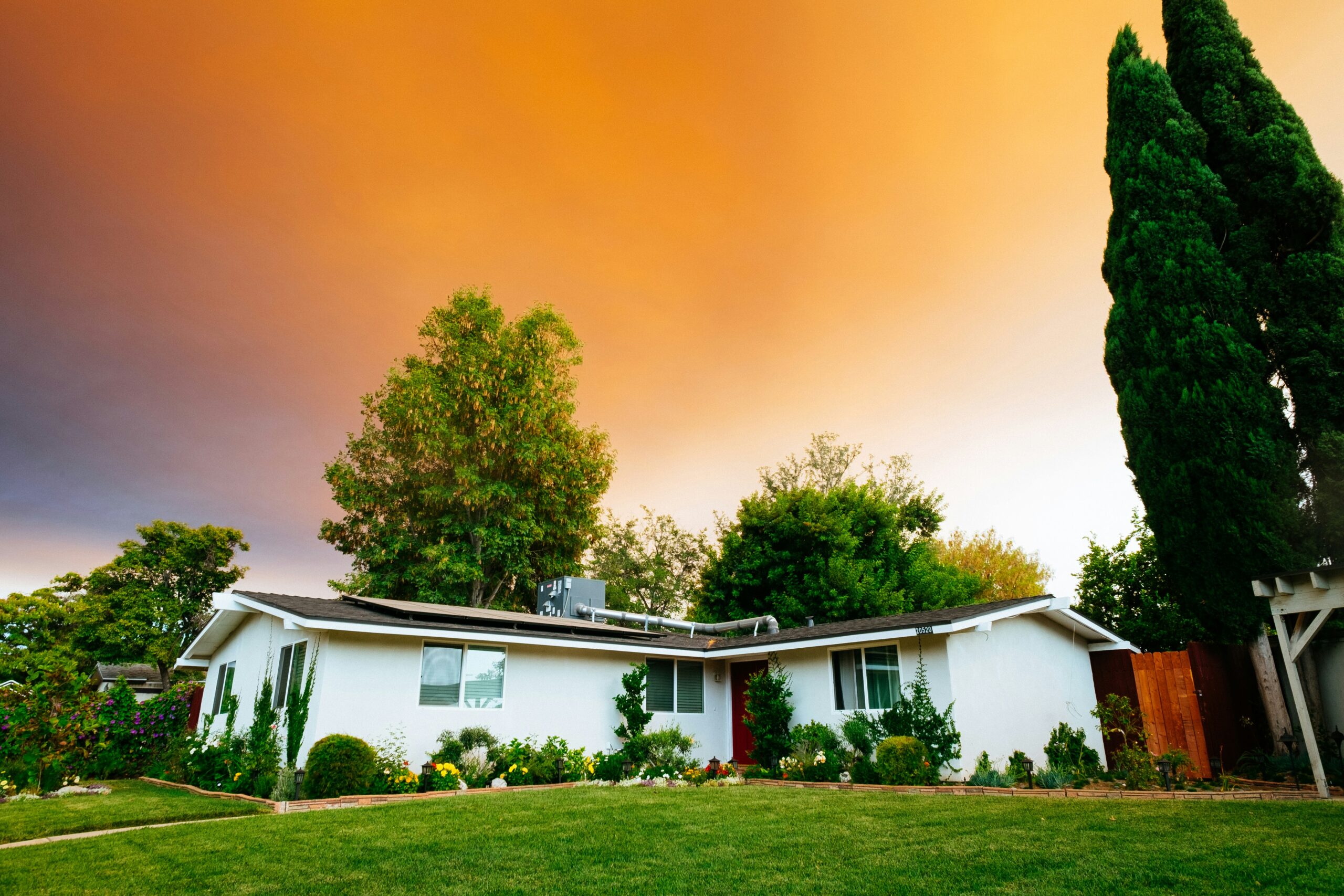Updated: 28/01/2026
Have you ever wondered what is the most common age to buy a first house – At what age do people typically buy their first house? If you’re curious about when most individuals take the leap into homeownership, you’re not alone. Many people ponder over this question, wondering if there’s a specific age when it’s considered “normal” to invest in a property.
In this article, we will explore the fascinating topic of the most common age to buy a first house, providing insights into the factors influencing this decision and shedding light on the trends that shape our housing market. Get ready to uncover the age that often marks the beginning of a lifelong journey as a homeowner.

Factors that Influence the Age to Buy a First House
Financial Stability
One of the key factors that influence the age at which individuals buy their first house is financial stability. Buying a house is a significant financial commitment, which requires a stable income, savings for a down payment, and the ability to make monthly mortgage payments. Younger individuals may find it more challenging to achieve the required financial stability compared to older adults, who may have had more time to establish a steady income and accumulate savings.
Career Development
Career development is another factor that plays a crucial role in determining the age at which people purchase their first house. Many individuals prefer to wait until they have established a solid career and are earning a stable income before taking on the financial responsibilities of owning a home. This allows them to feel more secure in their ability to make mortgage payments and maintain the house.
Economic Conditions
Economic conditions can significantly impact the age at which individuals buy their first house. During periods of economic prosperity and low interest rates, more people may be encouraged to enter the housing market at a younger age. Conversely, during economic downturns or periods of high interest rates, individuals may delay purchasing their first house until they feel more confident about their financial situation.
Personal Priorities
Personal priorities also influence the age at which individuals choose to buy their first house. Some people prioritize other life goals, such as traveling, starting a family, or advancing their education, before embarking on homeownership. These personal priorities can determine the timing of purchasing a first house and vary significantly among individuals.
Average Age to Buy a First House
National Average
The average age at which individuals purchase their first house varies from country to country. In the United States, the national average is around 32 years old. This age has gradually increased over the past few decades.
Regional Variations
While the national average provides a general perspective, it’s important to note that regional variations exist within a country. Factors such as cost of living, job opportunities, and the housing market can contribute to these differences. For example, individuals in metropolitan areas with higher costs of living may delay buying their first house compared to those in more affordable rural areas.
Urban vs Rural Areas
There is also a distinction between purchasing a first house in urban versus rural areas. In urban areas, the average age is often higher due to the higher cost of housing. Young adults may choose to rent or live with family for longer periods in order to save and afford a house in these areas. In contrast, individuals in rural areas may be able to purchase their first house at a younger age due to the lower cost of living and housing.
Trends in First Time Home Buying Age
Past Trends
In the past, it was more common for individuals to buy their first house at a younger age. Factors such as lower housing prices, less student loan debt, and more accessible mortgage options contributed to this trend. However, in recent years, the average age has increased due to factors such as rising housing costs and stricter lending requirements.
Current Trends
Currently, there is a growing trend of individuals buying their first house at a later age. This shift can be attributed to various factors, including higher levels of student loan debt, a delay in marriage and starting a family, and the desire for greater financial stability before committing to homeownership.
Future Expectations
Looking ahead, it is expected that the average age for first-time homebuyers may continue to rise. Factors such as increasing housing prices, changing economic conditions, and evolving socio-cultural norms may contribute to this trend. However, it is important to remember that individual circumstances and priorities play a significant role in determining the age at which someone buys their first house.
Advantages of Buying a House at Different Ages
Young Adults (18-25)
For young adults, buying a house at an early age can offer long-term financial benefits. It provides an opportunity to start building equity and wealth while taking advantage of potential property value appreciation. Additionally, young adults may have more flexibility and willingness to live in smaller or less expensive homes, allowing them to enter the housing market sooner.
Young Professionals (26-35)
As young professionals progress in their careers and potentially start a family, buying a house can offer stability and a sense of permanence. Homeownership provides the opportunity to customize and personalize living spaces, build equity, and establish a sense of community in a neighborhood or city.
Established Professionals (36-45)
Established professionals may have more financial resources and stability to purchase a larger and more desirable house. This age group often has more established credit scores, higher incomes, and greater savings, making it easier to secure favorable mortgage terms. Buying a house at this stage of life can offer a solid investment and a place to settle down for the long term.
Families with Children (46-55)
For families with children, buying a house can provide stability and a sense of belonging. Homeownership offers a permanent residence for children to grow up in and establish roots within a community. Additionally, having a house can offer more space and amenities that cater to the needs of a growing family.
Empty Nesters and Retirees (56+)
Empty nesters and retirees may choose to downsize or relocate to a more desirable location when purchasing a house. Downsizing can provide financial benefits by reducing housing expenses and potentially freeing up equity for other purposes. Furthermore, buying a house at this stage can offer the opportunity to customize living spaces for retirement and enjoy the benefits of homeownership in the golden years.

Challenges Faced by First-Time Home Buyers at Different Ages
Young Adults (18-25)
Young adults may face challenges when buying their first house due to limited financial resources and credit history. Insufficient savings for a down payment, a lack of established credit, and student loan debt can hinder the ability to qualify for a mortgage. Additionally, limited knowledge and experience in the housing market can make it difficult to navigate the process of buying a house.
Young Professionals (26-35)
For young professionals, the challenge may lie in balancing the desire for homeownership with career advancement and potential job changes. Buying a house at this stage may require careful consideration of future career opportunities and the ability to adapt to new locations if necessary. Additionally, student loan debt and other financial obligations can impact affordability and loan qualification.
Established Professionals (36-45)
Established professionals may face unique challenges such as managing increased responsibilities and financial obligations associated with homeownership. Juggling mortgage payments, property taxes, and maintenance costs while maintaining a work-life balance can be demanding. Additionally, this age group may have to consider the impact of their housing decisions on college funding for their children.
Families with Children (46-55)
Families with children may encounter challenges related to finding suitable housing that meets their evolving needs. Factors such as proximity to good schools, safety, and neighborhood amenities are crucial considerations. Additionally, the financial strain of raising children and saving for their future education can impact the ability to afford a house in the desired location.
Empty Nesters and Retirees (56+)
Empty nesters and retirees may face challenges related to downsizing or relocating to a new area. Emotional attachment to their current home, the difficulty of decluttering and downsizing, and the stress of a relocation process can make the decision to buy a new house more complex. Furthermore, financial considerations such as managing retirement savings, property taxes, and healthcare expenses must be carefully evaluated.
Tips for Buying a First House at Different Ages
Young Adults (18-25)
- Start saving early: Establish a savings plan to accumulate funds for a down payment, closing costs, and other homeownership expenses.
- Build credit: Establish good credit habits by paying bills on time, keeping credit card balances low, and avoiding unnecessary debt.
- Educate yourself: Research the housing market, understand mortgage options, and seek guidance from professionals to make well-informed decisions.
Young Professionals (26-35)
- Evaluate affordability: Assess your financial situation to determine how much house you can afford without overextending yourself.
- Prioritize needs vs. wants: Determine the essential features you need in a house and prioritize them over non-essential amenities.
- Plan for the future: Consider your long-term goals and potential life changes when selecting a house to accommodate your evolving needs.
Established Professionals (36-45)
- Work with a real estate agent: Engage the services of a real estate professional who understands your preferences and can guide you through the buying process.
- Consider maintenance costs: Take into account the potential costs of maintaining and repairing a house to ensure it aligns with your budget.
- Evaluate the neighborhood: Look beyond the house itself and assess the neighborhood’s amenities, schools, safety, and future development plans.
Families with Children (46-55)
- Research school districts: Prioritize neighborhoods with good schools and explore the educational opportunities available for your children.
- Consider family-friendly features: Look for houses with enough space, child-friendly layouts, and safety features that align with your family’s needs.
- Plan for future changes: Anticipate your family’s growth and changing needs in terms of space, amenities, and community.
Empty Nesters and Retirees (56+)
- Evaluate housing options: Consider downsizing, relocating, or exploring retirement communities that offer amenities and services tailored to your lifestyle.
- Plan for accessibility: Choose a house that accommodates potential physical limitations in the future, such as single-level living or accessibility modifications.
- Seek professional advice: Consult with financial advisors, tax professionals, and real estate agents who specialize in serving empty nesters and retirees.

Common Mistakes to Avoid when Buying a First House
Insufficient Financial Preparation
Failing to adequately prepare financially can lead to difficulties during the homebuying process. It is essential to save for a down payment, establish good credit, and evaluate affordability to ensure a smooth and successful purchase.
Not Considering Long-Term Needs
Focusing solely on immediate needs without considering long-term goals and changes in life circumstances can result in buying a house that doesn’t meet future needs. It is important to consider factors such as family expansion, career changes, and lifestyle expectations.
Overextending Financially
Borrowing too much and stretching beyond your means can lead to financial stress and impact other essential aspects of your life. It is crucial to evaluate affordability and ensure that mortgage payments, taxes, and maintenance costs fit comfortably within your budget.
Ignoring Maintenance and Repair Costs
Underestimating the costs and responsibilities of maintaining a home can lead to unexpected financial burdens. It is important to budget for ongoing maintenance, repairs, and potential home improvements to avoid being caught off guard.
Not Considering Location Factors
Neglecting to thoroughly research and evaluate the location of a potential house can lead to regret. Factors such as proximity to amenities, safety, school districts, and future development plans can greatly impact your daily life and property value.
What Is The Most Common Age To Buy A First House
The age at which individuals buy their first house can vary greatly depending on their financial stability, career development, economic conditions, and personal priorities. While the national average age provides a general indication, regional variations and urban vs. rural differences must also be considered. Understanding the advantages, challenges, and tips associated with buying a house at different ages can help individuals make informed decisions and navigate the homebuying process successfully.
By avoiding common mistakes and thoroughly evaluating their needs and goals, individuals can embark on a homeownership journey that suits their unique circumstances.
We very much hope you enjoyed our article about ‘What Is The Most Common Age To Buy A First House‘, and very much hope you managed to get the information you needed from it. Please take a look at ‘At What Age Is It Difficult To Get A Mortgage In UK‘, for more useful information.

